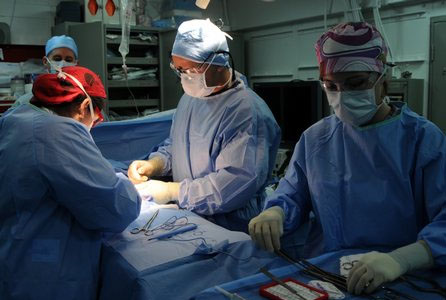
Why Putting off Groin Surgery is Not a Smart Move
People all over the world are tolerant to diseases. They only visit doctors at the very last moment. This holds true especially for conditions that require surgery. Maybe it's because people are scared of surgery, or maybe they do not have a lot of money and thus put more priority on shelter and food instead of on health, thus making them neglect their overall health.
Lots of people live with groin hernia without going through treatment for years. Although it might be alright for poor people and people who are scared of surgery to experience deferring treatment, it is not understandable why people whose treatment costs are covered by the organisations they work for go in for groin surgery very late. People should never wait for real problems to arise before calling on an emergency groin surgery. Maybe institutions provide this service free of charge due to its easy availability and security that they take it completely for whatever and whenever they go to the hospital for care. People do not seem to understand how much higher the risks could get by waiting it out. People who suffer from groin hernia for a bit less than a decade may go to surgeons for treatment only after they find out they also suffer from other things like chronic bronchitis. This is crazy.
Every disease that causes an intra-abdominal pressure increase might cause hernias to develop anywhere, such as in the groin – which also happens to be the most common place for it to develop in. These diseases could include chronic bronchitis, as well as any other disease that causes urine flow obstruction. Therefore, patients are recommended to take control of their bronchitis first, since groin surgery might fail if coughs persist during the period post groin surgery. Even sutures might give way.
People might listen carefully, but still report the same cough in another year associated with vomiting and diffuse pain in the abdominals. They blame their delay on the surgeon’s advice to come after the medicine specialist has controlled the bronchitis. This time, such patient might suffer from irreducible hernia. Hernia problems might progress from obstructed, irreducible, and strangulated to actual gangrene. These problems cannot be predicted, however; so those that come out through narrow openings become predisposed to it. Hernia contents get reduced in outdoor settings with recommendations for patients to arrive for definitive groin surgery quickly after controlling the bronchitis. Patients then leave with affirmation, without being seen for a lot of days.
Then, they will show up again with obstructed hernia that is a stage farther from the previous problem. Now, an emergency groin surgery needs to be done to save contents from falling to death, stop gangrene and save a life. Obstructed hernias usually get taken up with general anaesthesia. However, since bronchitis increases the risks of anaesthesia a hundred fold, sedation and local anaesthesia must now be put to use. Intra-operatively, harmful hemorrhagic fluid can be found within hernial sac gangrene-free. Now, the patient needs to pay close attention to the bronchitis so that it does not interfere with smooth recovery.
